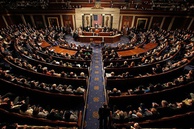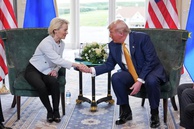We publish an excerpt from Professor Borisov’s article “The New Global System, or the World Without A Hegemon”.
In 1776, the oldest of the Founding Fathers of the United States, Benjamin Franklin, who was presiding at the Philadelphia Congress, which adopted the historic Declaration of Independence, pointed out as he opened the event that there was an image of a bright sun depicted on the back of his chair. “Is this the rising or setting sun for America?” – he asked the delegates rhetorically. History would provide the answer.
The Alternative World
The 21st century did not become the apotheosis of a unipolar world or see the triumph of the liberal world order, which Washington proclaimed with the end of the Cold War. The United States has clearly overestimated its potential and underestimated the rise of other global players. The law of uneven development of states proved its intact effectiveness. Washington may have concluded that history had stopped with the US's rise to the level of the only superpower and the world obediently accepted American supremacy. The striving to resolve all global issues on American terms, or, as J. Kennan said figuratively, "to keep our finger in every pie", resulted in the US overexerting its forces and alerted many of its allies and partners, especially with the arrival of President Trump, who proclaimed the nationalist slogan "America Above All".
The world faced a serious dilemma. Perhaps, for the first time it is confronted with the need for the redistribution of global power by agreement with, or, if you please, "by default" between the major players, preferably without upheavals, with due regard for the realities of the nuclear era and the existing military potentials of the great powers. It can be assumed that this might not be a complete reconfiguration of the old world order with the traditional winners and losers, but rather what the foreign minister of tsarist Russia, Prince A.M. Gorchakov, speaking about Russia's interests after it lost in the Crimean War, cautiously called the “improved status quo”.
Unfortunately, so far, we have to talk more about the clash of opposing trends in global politics, rather than about any concrete steps in this direction. The United States idealizes the post-Cold War status quo, which guarantees its supremacy and declares anyone who calls into question the "rules" and "norms" that underlie this supremacy its "adversaries", or "revisionist powers" undermining international order, which allegedly suits the entire international community. It is exactly this kind of assessment that was stipulated at the state level by the administration of President Trump for the first time in the National Security Strategy (December 2017) and the US National Defense Strategy (February 2018), which shift the focus of concern from the antiterrorist campaign back to the confrontation of the great powers and declare China and Russia major revisionist opponents.
Washington, for example, insists that Beijing should follow the rules and regulations of the order that emerged after the Second World War under American leadership. To this, China reasonably remarks that since it did not participate in the development of such an order, it cannot answer for the outcome. The former Chairman of the Joint Chiefs of Staff, Martin Dempsey, testified: "Whenever I talked with the Chinese about international norms or rules of conduct on the international scene, they invariably pointed out that these rules were established when they were not participants in world politics".
The persistent reluctance on the part of the US to share power with new candidates for participation in global governance within the framework of a multipolar or polycentric world is fraught with grave consequences for international stability. Moreover, obviously mistaken about its real capabilities and underestimating the growing potentials of its competitors, the US toughens its stance, believing in its unlimited resources and antagonizing an increasing number of states, thereby pushing the world to a new dangerous split. Unfortunately, history repeats itself. The hegemons who enter the decline stage of their existence doggedly refuse to accept the new realities and, in pursuit of elusive grandeur, commit one strategic mistake after another.
Meanwhile, compared to the past, the geopolitical position of the United States has never been as vulnerable as it is today. Washington has voluntarily listed Russia and China, the world’s major nuclear powers and members of the UN Security Council, as its top enemies. In the old days, American leaders have always been in time to join one of the parties in the impending conflict so that they could tilt the pendulum their way and at the end of the day find themselves in a strategic win "on the right side of history."
Sooner or later the United States is set to face self-isolation, unless, of course, the readiness of the leading European NATO members to sacrifice their well-being and security for American interests is much exaggerated. The joint diplomatic response to the “Skripal case” on the part of a number of EU countries under the pressure of the Anglo-Saxons is indicative of the imitation of Atlantic solidarity rather than genuine unity. The most critical remarks in the direction of Washington came from Berlin after the arrival of the Trump administration. It is time for Europe to shake off illusions and count on its own forces, says German Chancellor Angela Merkel.
The unusual nature of the US "two front" confrontation - in Europe and in Asia – is causing the American elite ever more headache, sending it into confusion and strategic nervousness and creating more pressure at home. The new stage of the arms race, which began after a period of relative calm as a result of US plans to secure clear advantages for itself at the cost of huge military expenditures needed for the development of a global missile defense system, does not take into account the fact that now Washington will have to deal with the fast-developing trade and military cooperation between Russia and China and their coordinated military efforts, though the two parties tend to avoid talking about the existence of a military alliance between them. The US economy may crack under this burden of maintaining confrontation with the two great nuclear powers and may end up "torn to shreds," which President Obama predicted for Russia not long ago.
This, however, is not the most worrying thing for the American elite. What evokes most concern is the prospect of a multipolar world as an alternative to American hegemony based on unipolarity. Apparently, there will be no soft transition "by agreement" to a new, more democratic world order in the foreseeable future. The United States is determined to continue to maintain its privileged, dominant position in the world, whatever it takes, even though everything indicates that chances for achieving this are slim and becoming yet slimmer.
In these circumstances, world developments are beginning to go around, towards creating an alternative international system and new financial, economic and political institutions.There are ever more signs indicating that globalization, tailored to a one-sided pattern as an "American project", according to the terminology of Z. Brzezinski, turned out to be a temporary phenomenon which existed until a fairly large number of countries became disappointed in it. Its current decline causes fears of a new schism in the unified world akin to the bipolarity in the days of the Cold War.
The outlines of this alternative system, where the United States does not have a voice and which already exists parallel with the US-led world liberal order, are becoming more and more visible. This system builds on new international organizations, such as BRICS, SCO, EEU, which are very popular in countries of the so-called "intermediate zone", qualitatively new financial institutions that function beyond the framework of the Bretton Woods Agreement and rely on the IMF and IBRD and the dominance of the US dollar as a global reserve currency, organizations such as the Asian Bank for Infrastructure Initiatives and the BRICS Bank, and a number of ambitious regional and transcontinental infrastructure logistics projects.
Among the latter, the Chinese One Belt, One Road Initiative, which could easily integrate with economic projects of the Eurasian Union that promote trade and are of great geopolitical significance, is of particular concern to Washington. The One Belt, One Road project, to cost an estimated 1 trillion dollars, is designed to link China and Europe by land where the famous caravan Silk Road passed in the past. Given its political and economic importance for Eurasia in the 21st century, it is compared to the postwar Marshall Plan in the West. According to "The Economist", "the initiative provides for countries to adopt resolution of disputes on the basis of Chinese rules. If today's Western norms collide with Chinese ambitions, then this mechanism will become an alternative. In this case, China acts as a regional superpower aimed at ousting America from East Asia.
Although it is too early to say whether the emerging trends will finally take concrete shape, all signs speak for the fact that the alternative system will continue to strengthen. There have been tangible signs of hesitation and doubt amidst a large group of countries which do not claim the right to independent policy and which, in times of crisis, tend to side with the strongest, in this context, with the United States. In the past, this unequivocally suggested that a change of world leaders was imminent. Apparently, we are witnessing the revival of the traditions of the Cold War, when confrontation between the two blocs, the two superpowers, allowed a number of countries to successfully maneuver between them to secure and advantage. America's credibility is clearly dimming, and even in transatlantic solidarity there have emerged noticeable cracks, especially after the arrival of Trump with his impulsive political, trade and economic moves on the brink of a full-scale trade war.
It is still difficult to say what we will see in "the post-American world", as the famous American political scientist F. Zakaria called his book. Most likely, the global development will follow an evolutionary way with due regard for the realities of the nuclear age and a more even distribution of forces within the group of leading states. Owing to historical circumstances, a unipolar world has become a unique phenomenon that can hardly be repeated. Moreover, it is difficult to imagine that one of the leader states could choose to set itself such an ungrateful, troublesome and very costly task. This does not mean that some states, such as China, will not be able to fulfil their increased potential and claim the role of regional hegemons in the foreseeable future.
Nevertheless, there is reason to hope, without falling into political idealism and with a great deal of confidence that the world will see the triumph of an improved world order which will hinge on the balance of interests and equality of states and on their collective responsibility for the future. After all, the end of an era, which Franklin compared to sunset at the beginning of American history, is not the end of the world.
read more in our Telegram-channel https://t.me/The_International_Affairs

 11:25 08.08.2018 •
11:25 08.08.2018 •



























